Palestinians have lived in the refugee camps around Lebanon since the Nakba in 1948 when they were forcibly ejected from their homeland by Israel. Most of these Palestinians have never set foot in Palestine and are prevented from doing so by Israel. Only the oldest have any memory of their homeland. Most were born in poverty in Lebanon and remain there.
I interviewed Palestinians of various ages in Bourj El Barajneh camp in Beirut, Lebanon to see how they keep the memory of their homeland alive. What ‘reminds’ them of Palestine, what is their collective cultural memory, and how do they keep these memories alive for the younger generation in a camp where only 1% or less have actually lived in Palestine?
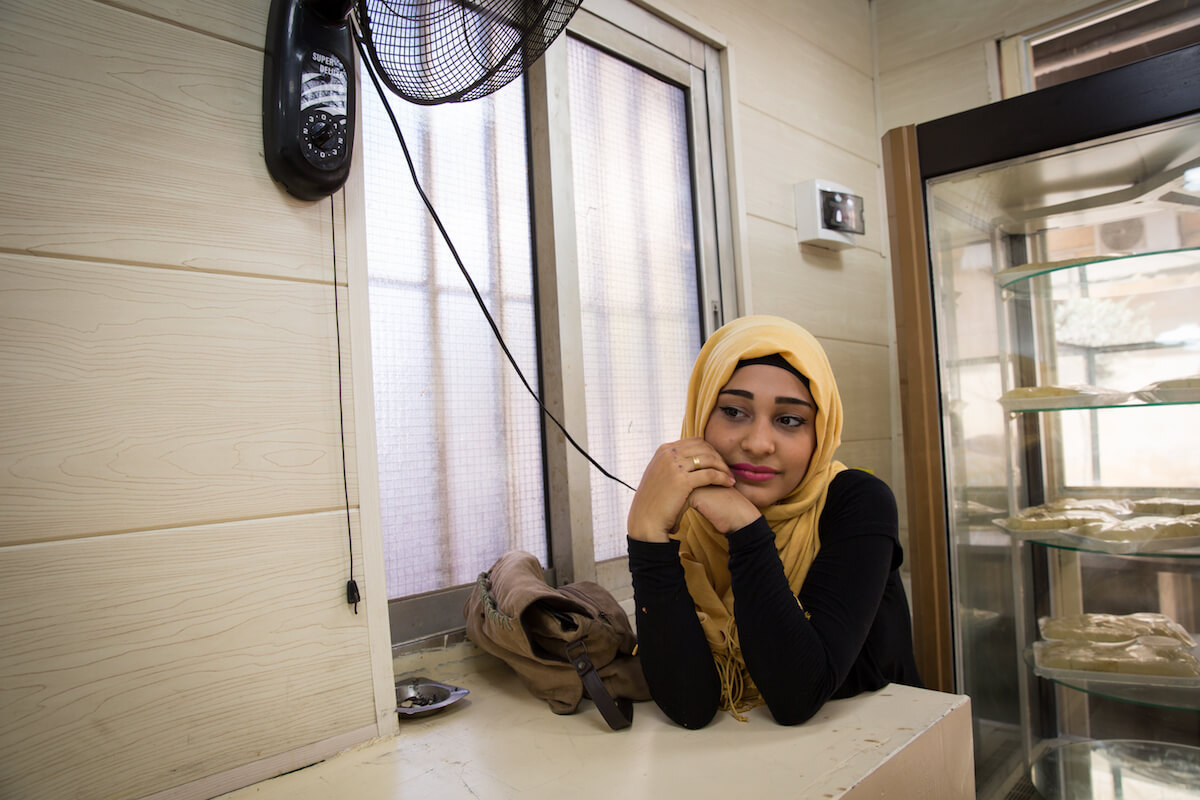
Bourj el Barajneh Camp, Beirut, Lebanon – 15/10/2016: Marwa Ayoub, 19 years old from Akka works in a sweet shop in the camp. “My parents told me Palestine has beautiful homes and fields but we have forgotten our traditions, we have forgotten everything. I have seen the ancient ruins on video, I would love to see them myself, nobody is happy here.”

Bourj el Barajneh Camp, Beirut, Lebanon – 15/10/2016: Malak is originally from Akka. “I’m from Lebanon, I was born in Lebanon. But I’m from Palestinian origins. I don’t know much about it, but I’ve been told that it’s such a beautiful place, I think it’s famous for its fish, and that’s it. I wish I could go, and see it, and get to know that country that I descend from. And that’s it. And of course, this is everyone’s dream, to free Palestine, and to become a free country, when all would be able to go back, so we can live in peace, and be free.”
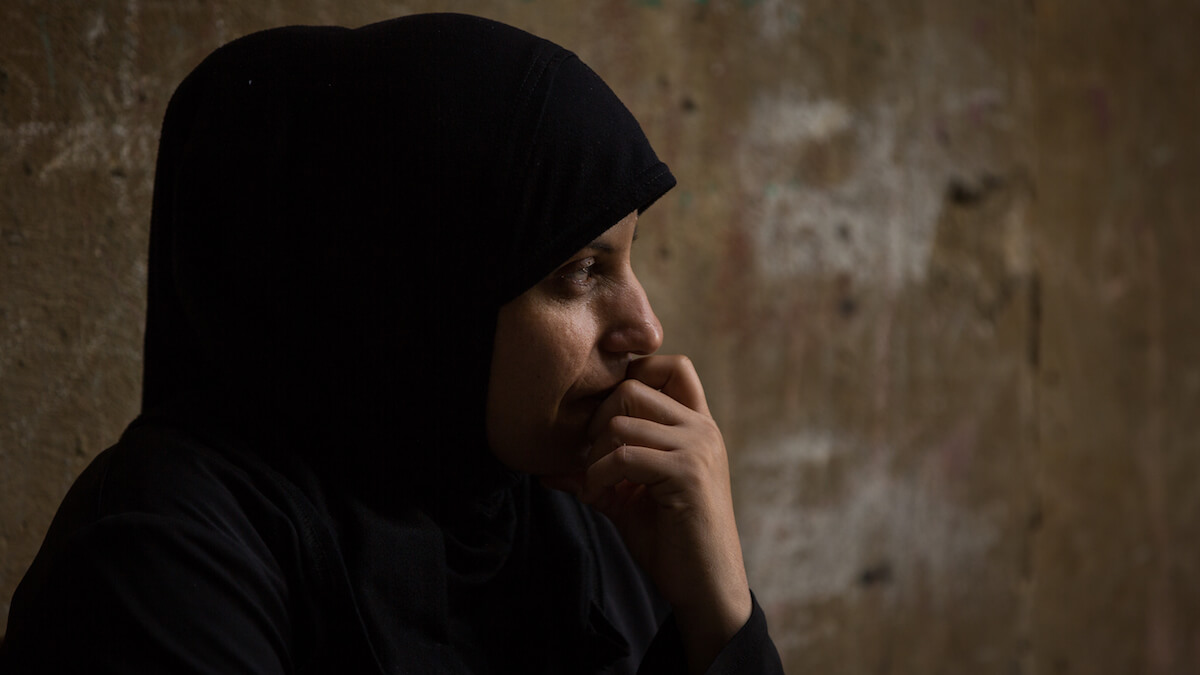
Bourj el Barajneh Camp, Beirut, Lebanon – 15/10/2016: 33-year-old Darjeh Ahed Mousa is from Zooum. “Yes, I’m from Zooum, but I don’t know from where exactly there, I was born in Lebanon. Palestine is a beautiful country, its people, its houses, its trees , everything is beautiful there, I’ve even seen it on the TV, in the news. I wish I could go.”“Palestine? The way they dress, this embroidery. What reminds us of our country here is the clothing, the embroidery, the abayas, the flags of Palestine, this all remind us of Palestine.”
“Palestine? The way they dress, this embroidery. What reminds us of our country here is the clothing, the embroidery, the abayas, the flags of Palestine, this all remind us of Palestine.”

Bourj el Barajneh Camp, Beirut, Lebanon – 15/10/2016: Ahmad Rafeek al Ali is from Kwaikat, Akka. He was born in Lebanon in 1982 and runs a barber’s shop in the camp. He says he decorated his shop to look like Jerusalem. He found out about Jerusalem’s architecture by seeing images on the internet and Facebook. “Our parents, our grandfathers and ancestors used to tell us a lot about Palestine. Our ancestors were farmers and landlords who used to grow olive and lemon trees in villages. They used to tell us about the Acre Wall, and how beautiful the city and was, the Wall also was amazing. Our grandfathers used to tell us about that mosque in Acre that had golden columns, originally made of gold, old traditional ones. The mosque is still there till now, all its columns are from gold, covered with gold.”

Bourj el Barajneh Camp, Beirut, Lebanon – 15/10/2016: Taha Issa, 78 years old, lived in Haifa for the first 9 years of his life but can hardly recall any memories from this period, finding it too painful to remember his early years in Palestine: “I can’t actually repeat things, maybe I remember but it’s been a long time, and to go back to memories is not easy.” He sometimes sees activities organized by various groups in the camps that remind him of Palestine.
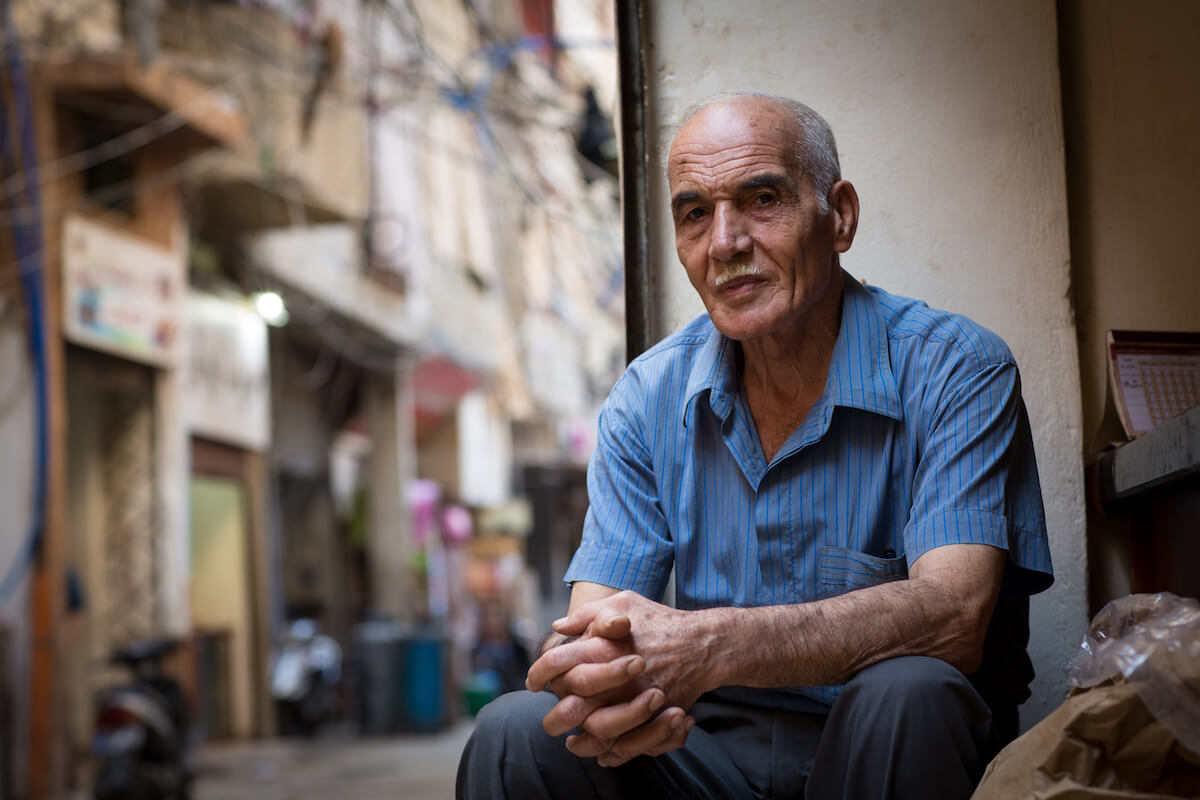
Bourj el Barajneh Camp, Beirut, Lebanon – 15/10/2016: Hasan Awad, 73 years old, from Kweikat Qada in Akka, lived in Palestine for the first 4 and a half years of his life and has lived in Bourj el Barajneh camp in Beirut, Lebanon ever since. “I remember our house. We had apple trees around the house, 2 rooms and one kitchen. Nothing here resembles Palestine. Nothing at all. We had to adjust to the current atmosphere, and so our traditions were left behind.”
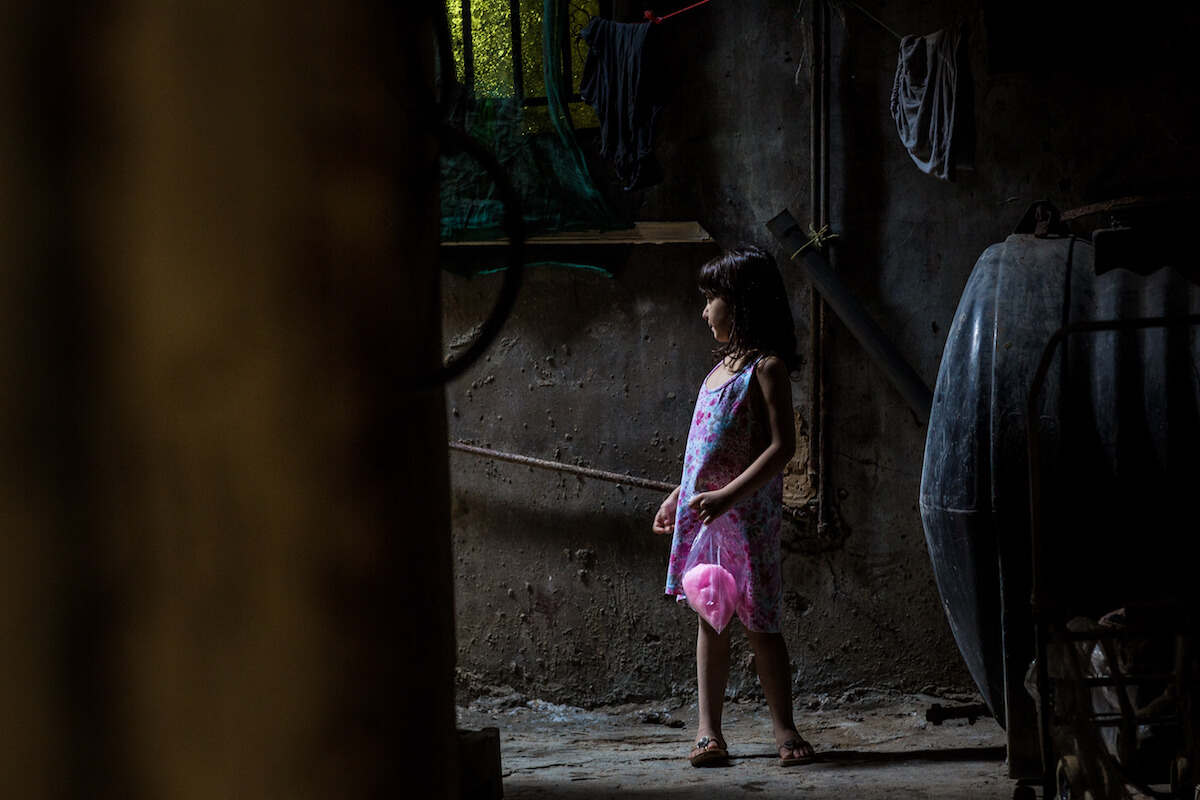
Bourj el Barajneh Camp, Beirut, Lebanon – 15/10/2016: 6-year-old Sanaa’s mother, Fatima Eisa Ramadan, is 41 years old and is from El Zeeb near Akka. Her father escaped Palestine as the Israelis were bombing the area. She has never seen Palestine herself but has been told it “is paradise on earth, so beautiful with its trees and fruit”. Nothing reminds her of Palestine in Bourj el Barajneh. She prefers not to mingle with the people in the camp, seeing them as “following western traditions, not so traditional”.
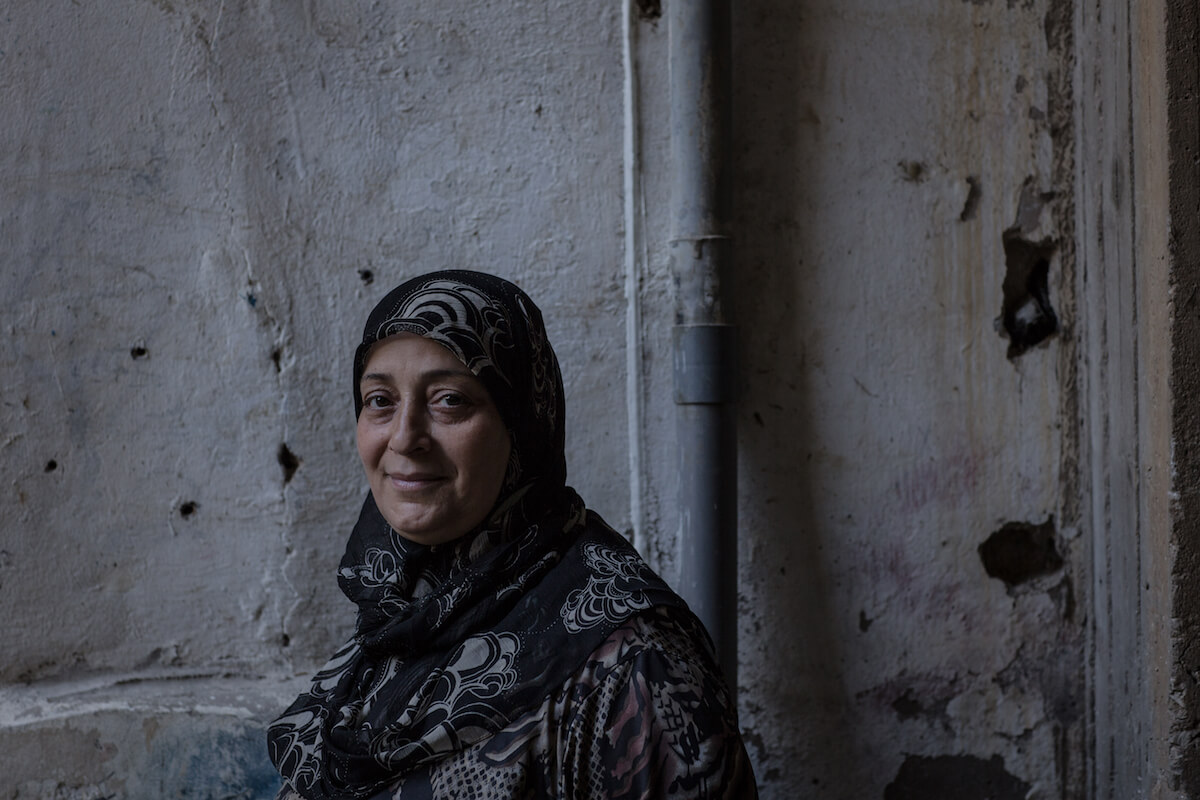
Bourj el Barajneh Camp, Beirut, Lebanon – 15/10/2016: Hanane Steitieh, 51 years old is from Haifa. Her mother talks to her about her home town, about a school near a mosque, and her grandfather was a fisherman. In Bourj el Barajneh camp the Palestinian political parties remind her of her homeland, and sometimes music she hears.
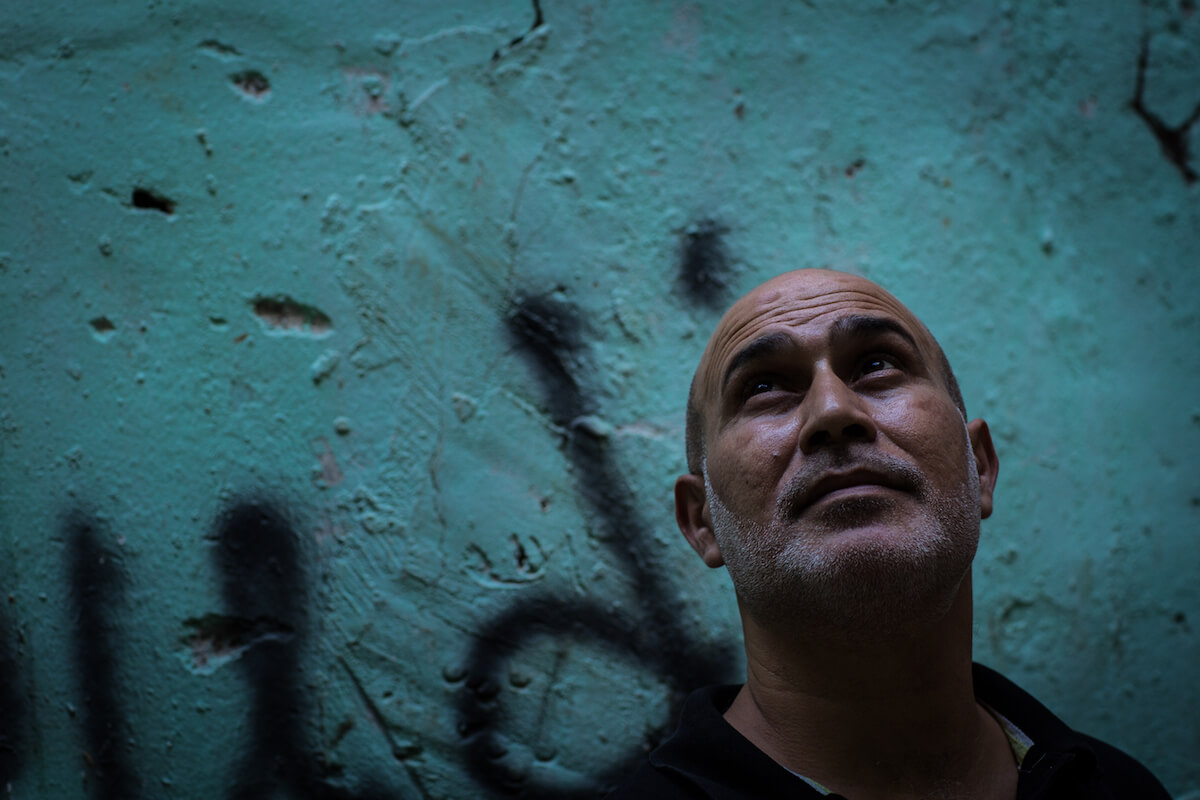
Bourj el Barajneh Camp, Beirut, Lebanon – 15/10/2016: Nasr el Khateeb is 47 years old and runs a shop in the camp. “My parents told him about Palestine, how beautiful it is, and the importance of its geographical position. My grandmother stayed there and died there. My father left their lands and just took his keys with him to Lebanon. They were happy until the occupation kicked them out. The Palestinian accent, the social life and cuisine remind me of Palestinian culture.”
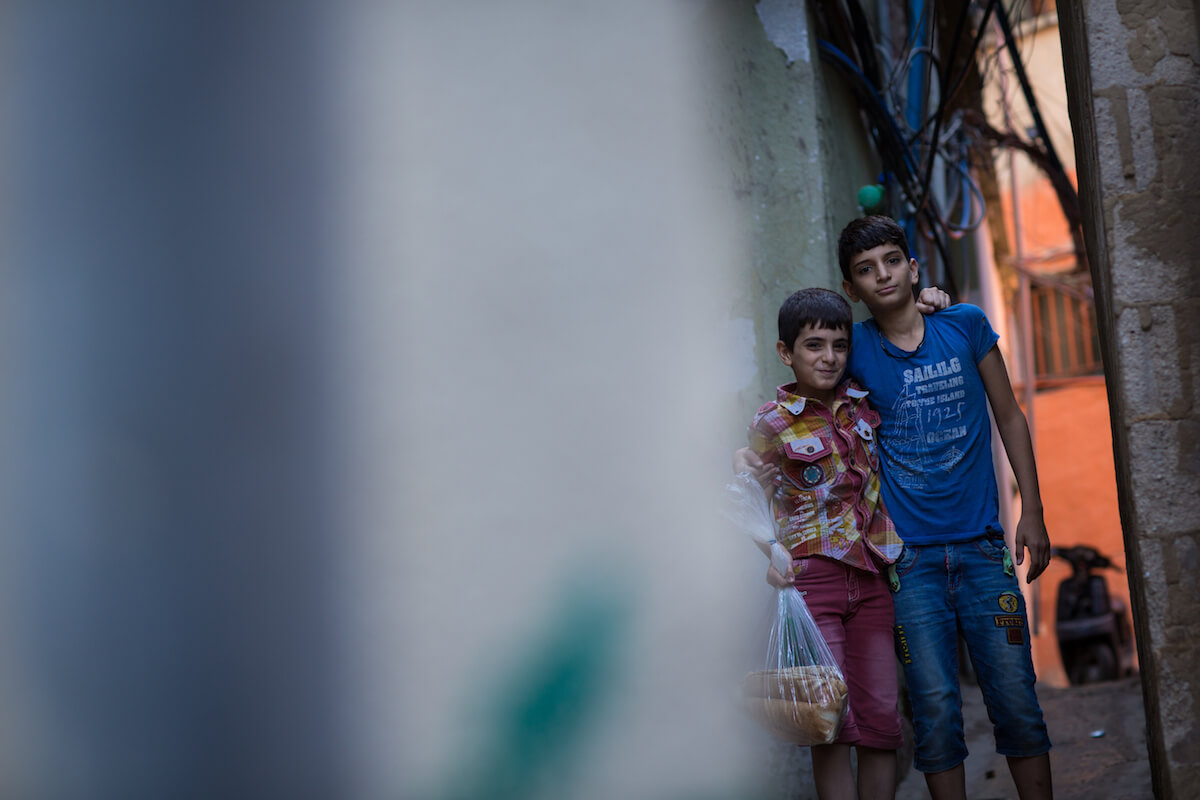
Bourj el Barajneh Camp, Beirut, Lebanon – 15/10/2016: Eisa was born in Lebanon in the camp. “I don’t know anything about Palestine. My father did not tell me anything because he doesn’t know anything.”
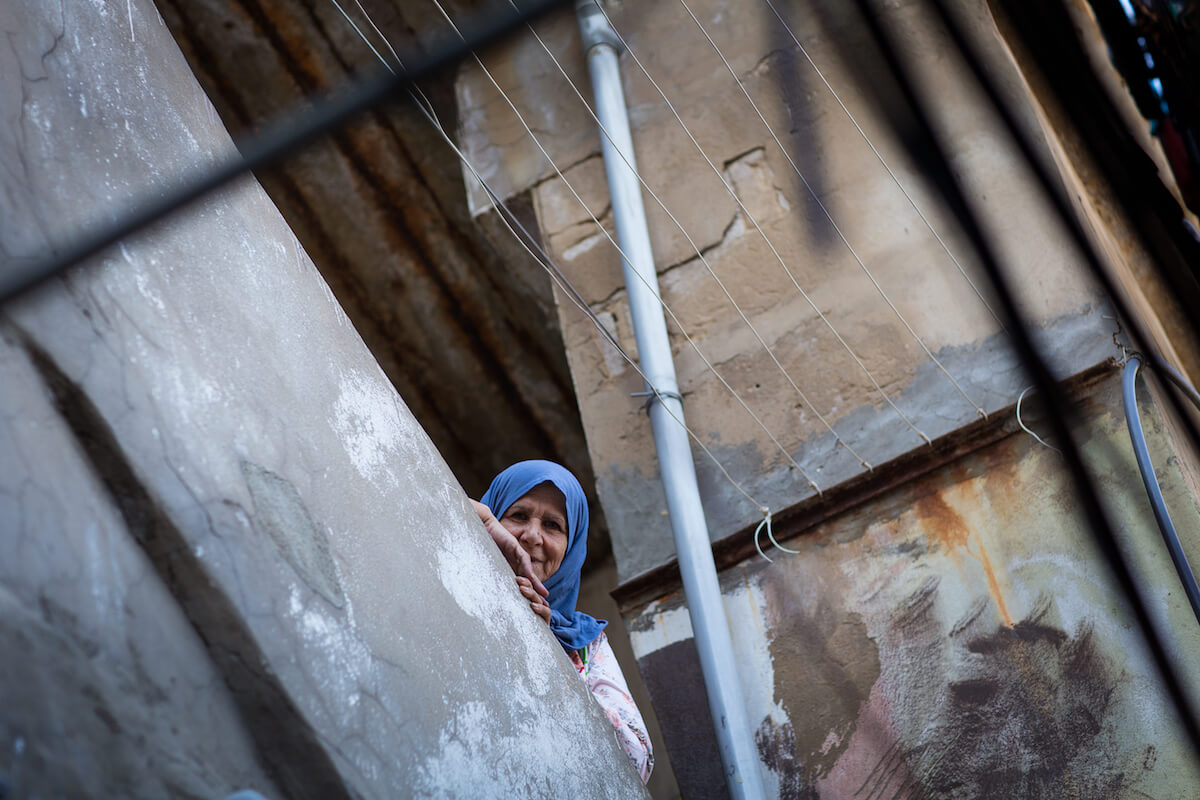
Bourj el Barajneh Camp, Beirut, Lebanon – 15/10/2016: 60-year-old Nazmieh from Al Ghabsieh Safad, left Palestine when she was one year old. Her family went from living comfortably, owning a family home where their house was surrounded by a farm complete with olive trees. They lost everything. “I am willing to give my last child to get my country back. Israel has nothing to do with our land. With their force, they kicked us out but nobody has greater force than God.” She says that only wedding and funeral traditions keep the Palestinian traditions alive in Bourj el Barjneh.

Bourj el Barajneh Camp, Beirut, Lebanon – 15/10/2016: 26-year-old Mohammad is from Safed and works in a coffee shop in the camp. “And the only thing that reminds me of Palestine here is the Palestinian accent they speak here in the community. Also when I see an olive tree it reminds me of Palestine. The Palestinian traditions, the clothing, the things they still make, things they still keeping from there. The things that remind me of Palestine are the things I told you about, Palestinian accent they speak here in the community, the Palestinian traditional stories we still tell. Things like the Wheat Mill, things like that I see from the time of our grandfathers. There are even really old people out there who were born in Palestine, and when we sit with them and listen to them talking you feel like you’ve moved to Palestine itself. Things like these.”
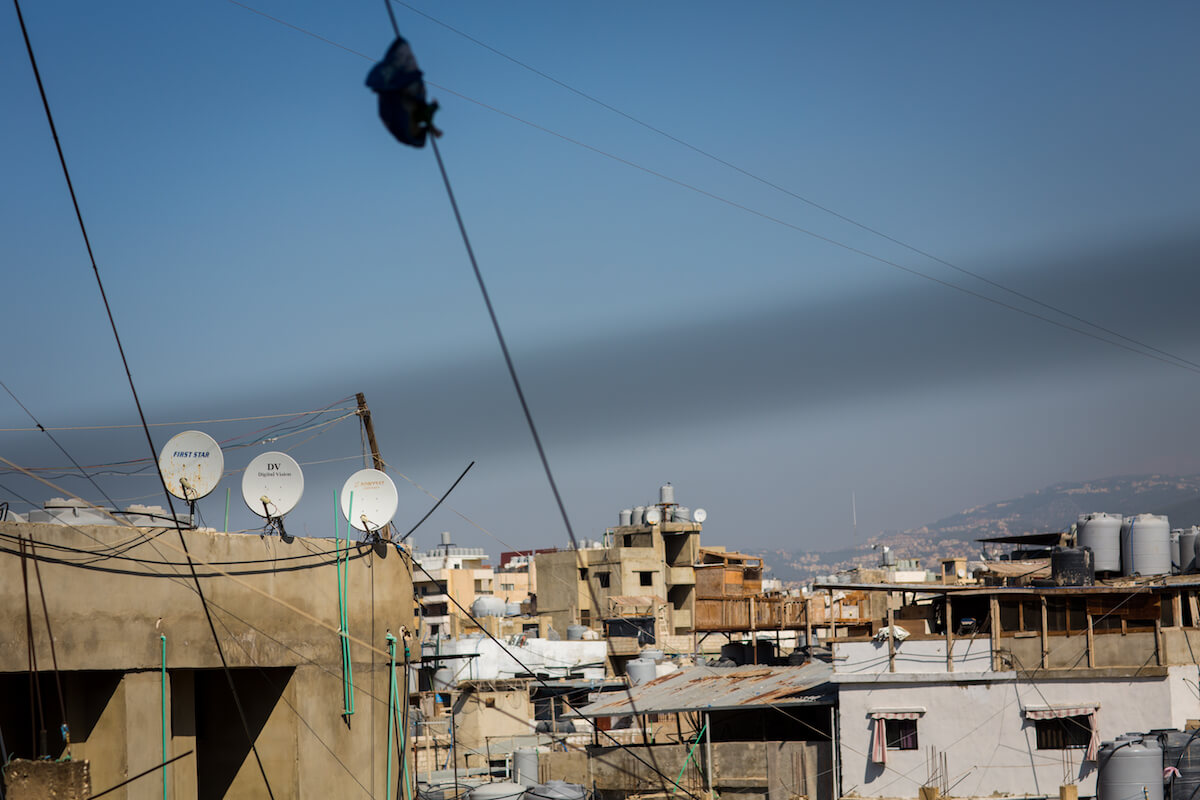

![Bourj el Barajneh Camp, Beirut, Lebanon - 15/10/2016: Heyam Mahmoud, 54 years old, is from the city of Akka, has never lived in Palestine but her mother lived there until she was 9 year’s old and passed along some memories of her city: “Aaka is a beautiful city, the wall is so wide a car can drive on it and it separates the sea from the city. My grandfather used to go to Jazaar mosque and he took my uncle with him to pray. We brought nothing with us, nothing [here] reminds us of Palestine except our memories. We use these memories to apply them in our weddings and social gatherings.” (Photo: Celia Peterson)](https://mondoweiss.net/wp-content/uploads/2016/12/336A8922.jpg)


Small examples of Zio-supremacism successfully wiping Palestine off the map and pushing it into the sea. :-(
Palestinians will get back to Palestine. The bots have no idea what they are doing.
Beautiful piece. The lunacy of the Jewish claim based on a religious book while the peasants who actually lived there were expelled. Israel was born bad and got worse.
Rachel Corrie knew this
I used to go to a shawarma place in London. The staff were all Lebanese. Except for one Palestinian. “Ana min Haifa”. “I am from Haifa”. He grew up in one of the refugee camps in Lebanon. Very hard to explain to such people why a 2000 year old claim is superior to their rights.